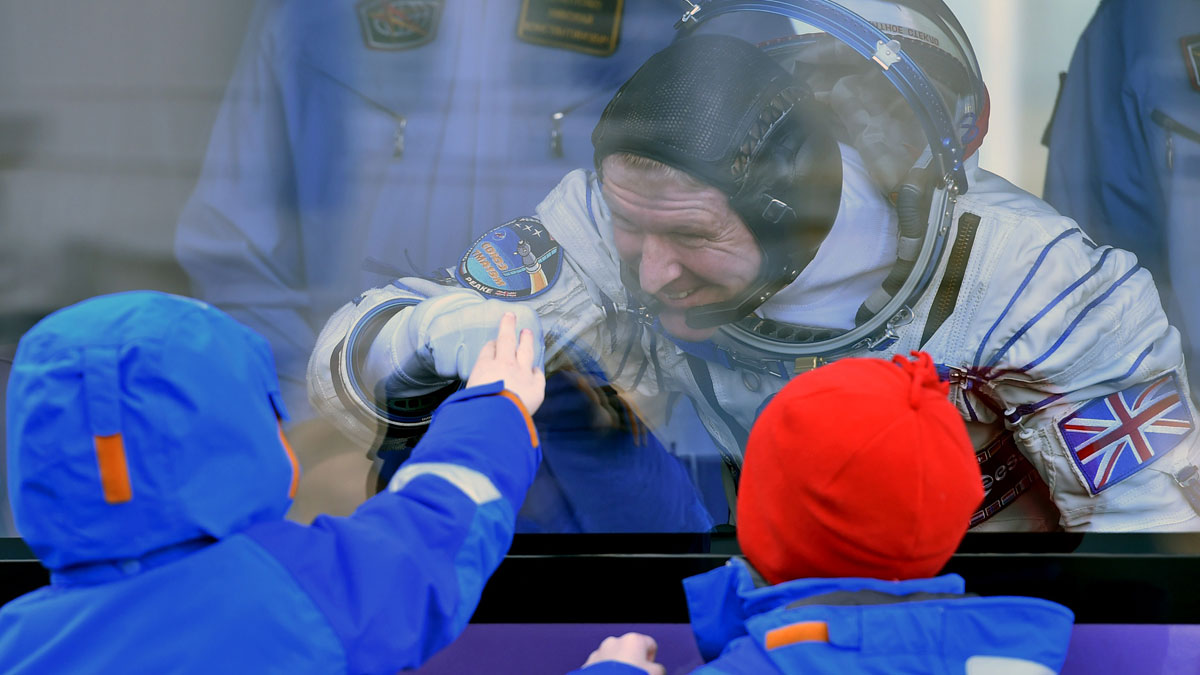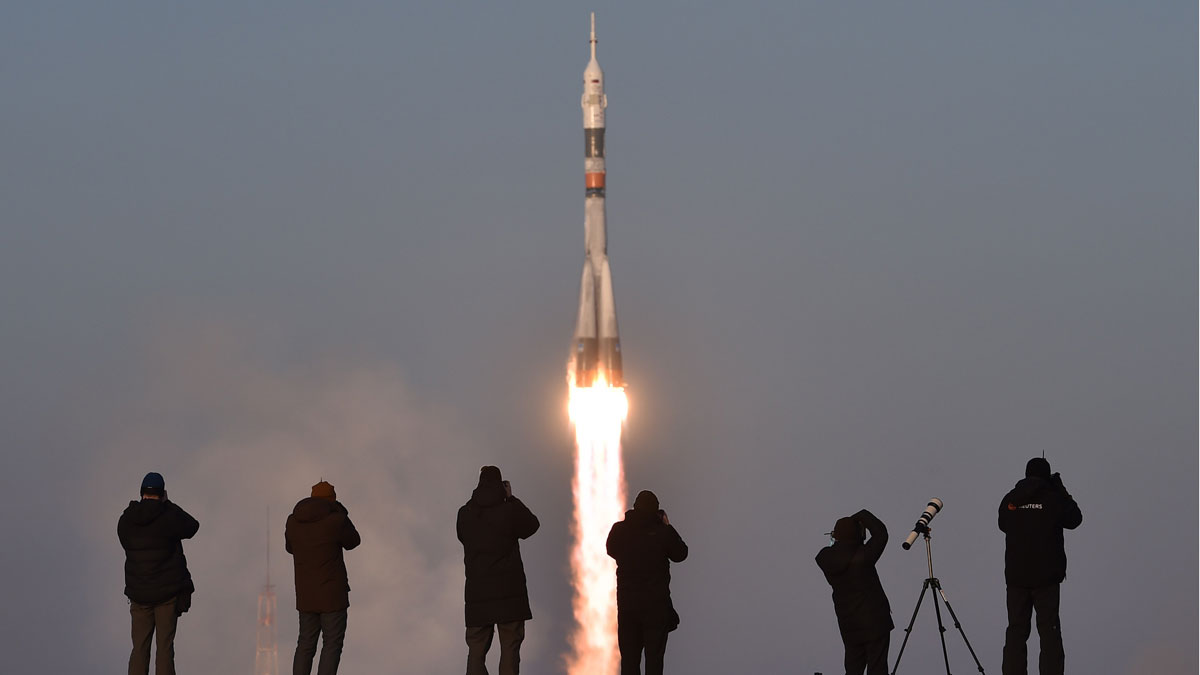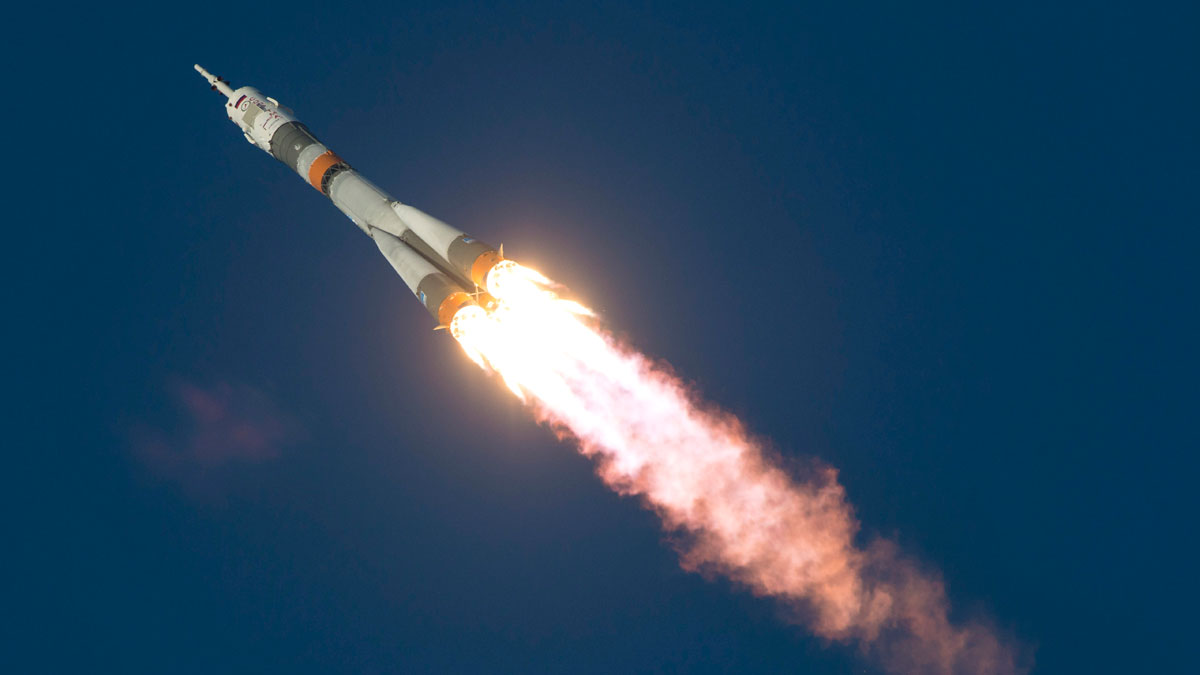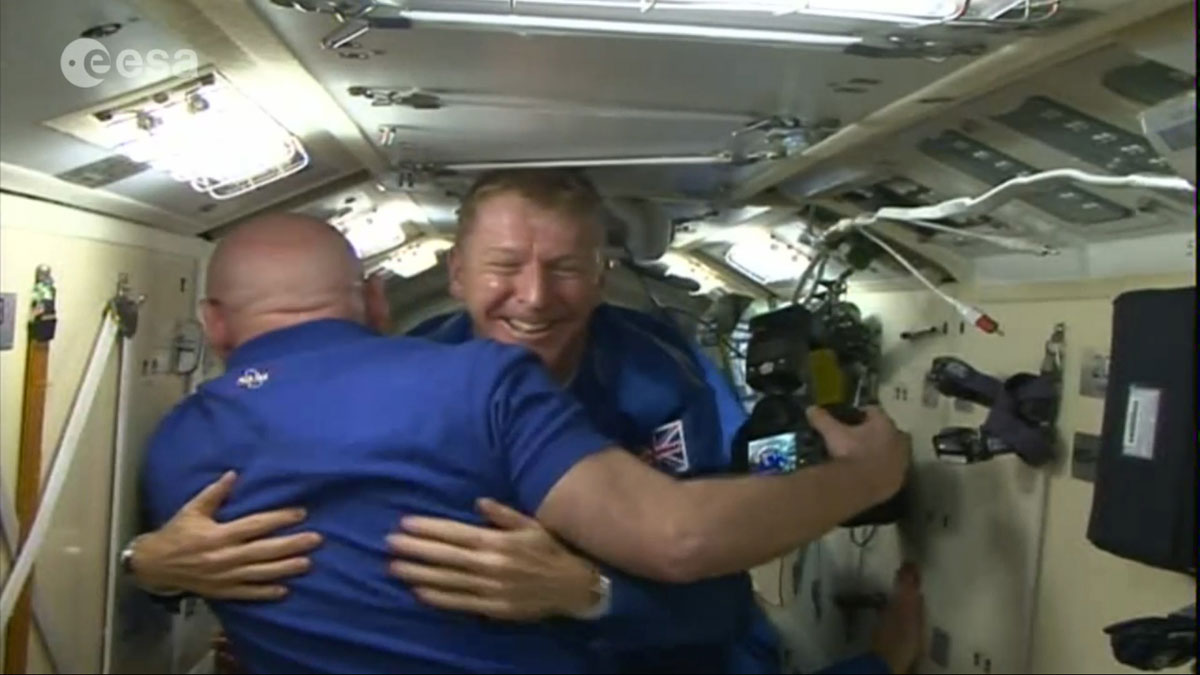Not-so-final frontier: Astronaut Tim Peake to return to space
UK's first official astronaut says he 'misses the view of planet Earth'
A free daily email with the biggest news stories of the day – and the best features from TheWeek.com
You are now subscribed
Your newsletter sign-up was successful






British astronaut Tim Peake plans to return to space, saying he "misses" the view of planet Earth from the International Space Station (ISS).
In a surprise announcement today, Peake said he and his colleagues are to make a second trip to the ISS.
He said: "It's what every astronaut wants to do. It is only natural to want to return.
The Week
Escape your echo chamber. Get the facts behind the news, plus analysis from multiple perspectives.

Sign up for The Week's Free Newsletters
From our morning news briefing to a weekly Good News Newsletter, get the best of The Week delivered directly to your inbox.
From our morning news briefing to a weekly Good News Newsletter, get the best of The Week delivered directly to your inbox.
"The one thing you miss is the view of planet Earth, of course. It is the most spectacular thing you can possibly see. But also being involved in the space programme is hugely rewarding."
Peake made his announcement during a visit to the Science Museum in London today to unveil the spacecraft that transported him back home last June, following his six-month stint on the ISS.
Russia's Soyuz capsule is the first manned spacecraft to feature in the museum collection and still bears the scorch marks from its re-entry into the Earth's atmosphere.
Business Secretary Greg Clark, who was at the ceremony, said: "The space sector is an important and growing part of the UK space agency."
A free daily email with the biggest news stories of the day – and the best features from TheWeek.com
Sussex-born Peake served in the army for 17 years, where he qualified as a helicopter pilot and left as a major in 2009. He gained international fame when he was chosen for the space mission and became the UK's first official astronaut.
-
 Political cartoons for February 16
Political cartoons for February 16Cartoons Monday’s political cartoons include President's Day, a valentine from the Epstein files, and more
-
 Regent Hong Kong: a tranquil haven with a prime waterfront spot
Regent Hong Kong: a tranquil haven with a prime waterfront spotThe Week Recommends The trendy hotel recently underwent an extensive two-year revamp
-
 The problem with diagnosing profound autism
The problem with diagnosing profound autismThe Explainer Experts are reconsidering the idea of autism as a spectrum, which could impact diagnoses and policy making for the condition
-
 Nasa’s new dark matter map
Nasa’s new dark matter mapUnder the Radar High-resolution images may help scientists understand the ‘gravitational scaffolding into which everything else falls and is built into galaxies’
-
 Moon dust has earthly elements thanks to a magnetic bridge
Moon dust has earthly elements thanks to a magnetic bridgeUnder the radar The substances could help supply a lunar base
-
 How Mars influences Earth’s climate
How Mars influences Earth’s climateThe explainer A pull in the right direction
-
 The ‘eclipse of the century’ is coming in 2027
The ‘eclipse of the century’ is coming in 2027Under the radar It will last for over 6 minutes
-
 NASA discovered ‘resilient’ microbes in its cleanrooms
NASA discovered ‘resilient’ microbes in its cleanroomsUnder the radar The bacteria could contaminate space
-
 Artemis II: back to the Moon
Artemis II: back to the MoonThe Explainer Four astronauts will soon be blasting off into deep space – the first to do so in half a century
-
 The mysterious origin of a lemon-shaped exoplanet
The mysterious origin of a lemon-shaped exoplanetUnder the radar It may be made from a former star
-
 The 5 biggest astronomy stories of 2025
The 5 biggest astronomy stories of 2025In the spotlight From moons, to comets, to pop stars in orbit